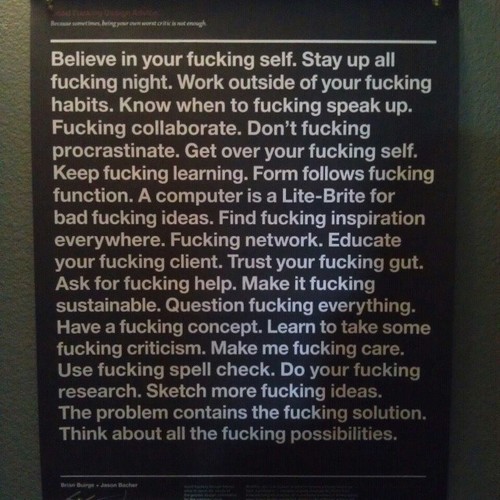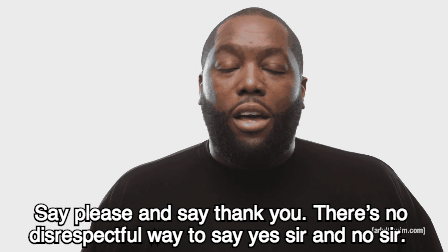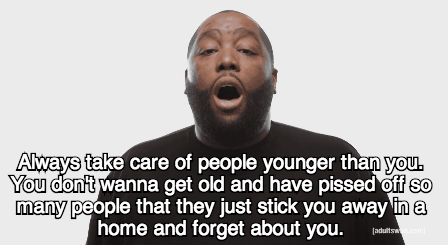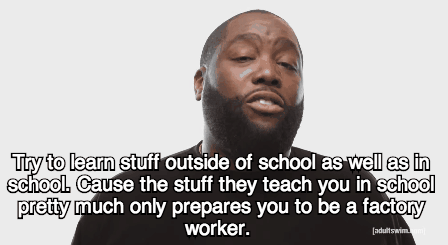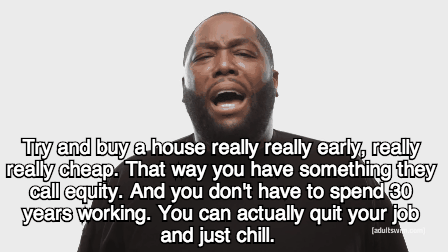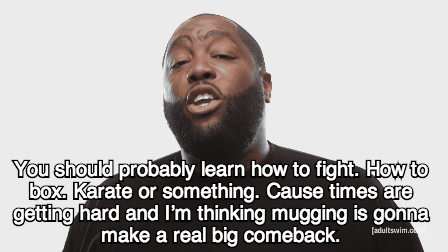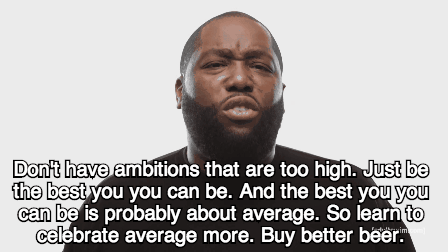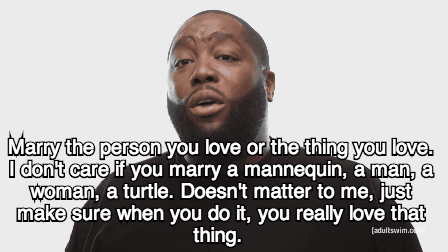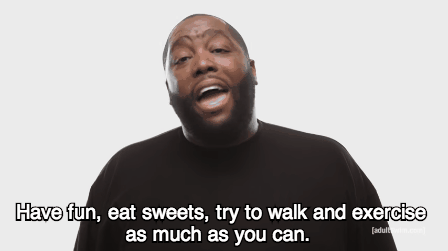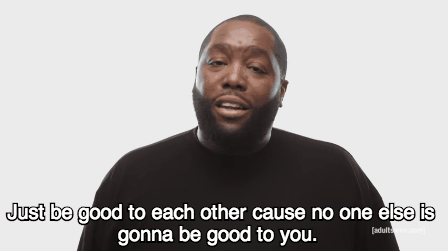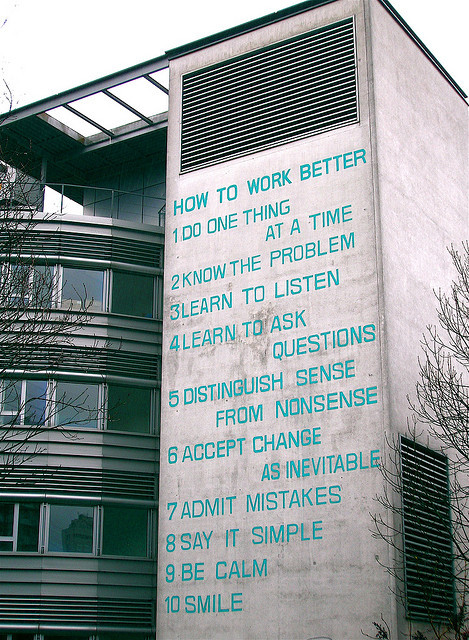Enjoy the vinegar, explore the Path.
122 posts
Daoismdiscussions - Daoism Discussions - Tumblr Blog
How often do you meditate and what recommendations would you give to someone trying to make mediation a daily habit?
I find that there are three elements to beginning a meditation practice.
They are: the benefits, the resolve, and the practice.
The Benefits
Before beginning a meditation practice, it can be helpful to take a moment to recognize the benefits the come from meditation. This in turn will help to generate an urge to meditate.
Meditation:
Helps you to calm down.
We live with more restlessness than we realize.
This restlessness is the source of many problems for us.
A feeling of numbness or emptiness that needs filling, a sense of being separate from our sources of happiness, and a general background of anxiety.
Aids in emotional balancing.
We experience a range of emotions in daily life. Some are wonderful and others are traumatic.
The experiences are not the problem but rather the traces they leave in our mind and body.
Meditation helps you to find balance with the past, openness in the present, and readiness for the future.
Has numerous physiological benefits.
Meditation helps with insomnia, depression, PTSD, irritable bowl syndrome, asthma, chronic pain, and many other dysfunctions.
It’s free!
Nuff said.
The Resolve
This aspect is a bit more philosophical. We know of many things that would be good for us–eating better, exercising, doing our homework, etc. Yet that doesn’t always mean we will actually do those things.
It is useful to contemplate how meditation is a privilege.
Humans are uniquely positioned to meditate.
Most if not all animals are locked in a cycle for survival.
Seek food and eat.
Don’t get eaten.
Reproduce.
Few creatures can actually take time away from their physical needs and be able to sit and go inward to experience their full consciousness.
Not all humans can meditate.
Some humans suffer from severe mental disability.
Some humans are fighting for their survival every day.
Some humans have never heard of meditation.
Acknowledge your good (enough) health and your opportunity take up a timeless practice that has existed in various forms for thousands of years.
The Practice
Now that you’ve gotten yourself motivated to make meditation part of your life, it is time to actually hammer out the details.
Pick a time of day that best suits your schedule consistently.
Do you have time in the morning to sit for a meditation? When would be best?
When you first wake up? Before or after breakfast? Before or after you shower? Think about what works for you.
Or do you have more time in the evening after your day is done?
Before or after dinner? Before or after you brush your teeth?
The trick is to examine your daily habits and see where meditation would most readily fit in.
Pick a single meditation technique and stick with that technique for at least a month.
I have written a lot about meditation here.
There are many kinds of meditation. Pick whatever kind you feel drawn to and give it a good few weeks of daily practice before coming to a decision about whether or not it is for you.
Let go of expectations.
This is the hard part.
Meditation does more for you than you realize. If you just focus on what you expect, you may overlook the unexpected ways meditation will help you.
Meditation may not feel good right away.
You may experience intense sadness, anger, fear, or any other emotions.
Be persistent anyway.
Stay motivated.
Reading spiritual books help.
Anything by Eckhart Tolle, Adyashanti, Pema Chodron, or Judith Blackstone will be useful.
My current schedule allows for me to meditate in the evenings. I come home from the library after studying. Before I do anything, I sit in my reading chair. First I just breathe and allow myself to be present. I recognize my current life situation and how it is temporary. I appreciate the space of my room and that I have this time to myself.
Sometimes I may do a little mantra meditation to start off. Then I sit in silence, eyes closed, and just be. If thoughts or feelings come, I don’t let them pull me into further trains of thought and feeling. I keep my attention focused on the meditation. And that’s it.
I’ll usually do this for twenty minutes or so and then get up to fix myself some dinner.
Namaste :) I hope this helps.
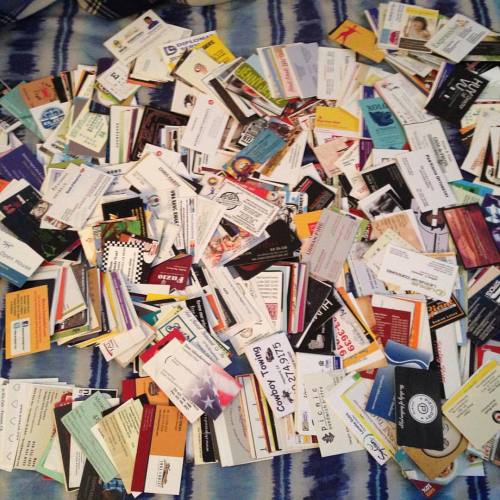
I don't even remember why I started, only that it was a long time ago on a whim. Something about making a clever statement on the nature of capitalism, I think. And then I kept it going, kind of like a silly ritual for when folks would come back from trips. And when I started going to conventions, it became an exercise in researching design, exploring the many ways to summarize oneself on a tiny piece of cardboard. It was a mnemonic device, each card holding a specific memory of the person I received it from, or at least that was an idea. And I kept taking them, piles and piles of them, filling up books and bags and tiny novelty filing cabinets. But now that I've dug around my life, I can honestly say they don't have much meaning for me any more. The world has changed, and I have changed. And I think it's good to release the past in this way. So thank you, to everyone that's ever given me one of their tiny pieces of cardboard, thank you for the memories.
I have a fear towards Islam. I get nightmares where an Islamic radical tries to kill me. This fear originated after moving to an Arab country where I live now. Despite having Muslim friends, I am still hateful towards the religion. How can I stop?
What you’re afraid of is terrorism and murder. Islam is simply a religion.
You can hate on the followers of a religion, their misinterpretations, and their personal prejudices. But the religion itself is purely philosophy and doctrine.
In my experience with Christianity and Islam, what you look for is what you find. If you are looking for archaic and even cruel philosophies, you will find aspects of that in their canonical texts. If you are looking for insightful and moving wisdom, you can find that too.
I feel we live in an era that is incapable of being fully served by the religions of the past. While we may learn much from them, the future must come from the present.
Much of that may depend on each and every one of us to discover our own paths. That is why I encourage meditation. It is like giving you a flashlight in the dark. Where you decide to go is up to you but at least you will be awake and aware. Your mind and heart will be healthy and in balance.
You don’t have to approve of Islam or any other religion in order to be at peace with its presence and the presence of its followers.
My advice to you is to meditate daily. But also maybe to explore a bit of Islam’s mystical tradition called Sufism. There you will find a mysterious tradition of unknowable love. Read poetry by Rumi and Hafiz.
I find that when I have received some sort of wisdom from a religion, I can feel grateful for it.
Namaste!
Hello! I was wondering about your opinion on how mental illnesses are viewed from a taoist perspective. As much as I love this philosophy and as much as it has influenced my life, sometimes I get the feeling that it doesn't really take mental illnesses into account and disregards them as "not working enough on yourself". Especially thinking about depression and Chronic Fatigue Syndrome. I don't know how to deal with these issues from a taoist perspective. Thank you in advance & have a good day!
Hi! I am so glad you asked this question because I think about this a lot. I suffer from anxiety and periods of depression, so I know how frustrating it can be. Taoism is actually one of the two main things that have helped me deal with it. I can’t think of anything in either the Tao Te Ching or the Chuang Tzu that specifically addresses mental illness, but I definitely don’t think that Taoism disregards it.
Keep reading
We all have an infinite, constant path to walk.
Patience
‘The third quality of spiritual maturity is patience. Patience allows us to live in harmony with the dharma, the Tao. As Chuang Tzu stated:
The true men of old
Had no mind to fight Tao
They did not try by their own contriving
To help Tao along.
Spiritual maturity understands that the process of awakening goes through many seasons and cycles. It asks for our deepest commitment, that we take the one seat in our heart and open to every part of life.
True patience is not gaining or grasping, it does not seek any accomplishment. Patience allows us to open to that which is beyond time. When Einstein was illustrating the nature of time, he explained, “When you sit with a pretty girl for two hours, it seems like a minute, and when you sit on a hot stove for a minute, it seems like two hours. That’s relativity.” When the Buddha spoke of practicing for one hundred thousand mahakalpas of lifetimes, he did not mean that it takes forever to awaken, but that awakening is timeless. Awakening is not a matter of weeks or years or lifetimes, but a loving and patient unfolding into the mystery just now.
“The problem with the word patience,” said Zen master Suzuki Roshi, “is that it implies we are waiting for something to get better, we are waiting for something good that will come. A more accurate word for this quality is ‘constancy,’ a capacity to be with what is true moment to moment after moment, to discover enlightenment one moment after another.” In the deepest way it understands that what we seek is what we are, and it is always here. The great Indian teacher Ramana Maharshi said to students who were weeping as his body died, “but where do you think I could go? Maturity of spiritual life allows us to rest just here in the truth that has always been and always will be.’
- Jack Kornfield, A Path With Heart: A Guide Through the perils and Promises of Spiritual Life.
The importance of discernment.
So I’ve gotten a bunch of asks and tweets asking me whether or not we should be worried about the impending explosion of the largest volcano on Earth (which I happen to live very nearby). No, you should not.
This latest round of speculation was sparked by a YouTube video…yes, literally a single...
I believe all suffering is caused by ignorance. People inflict pain on others in the selfish pursuit of their happiness or satisfaction. Yet true happiness comes from a sense of inner peace and contentment, which in turn must be achieved through the cultivation of altruism, of love and compassion and elimination of ignorance, selfishness and greed. The problems we face today, violent conflicts, destruction of nature, poverty, hunger, and so on, are human-created problems which can be resolved through human effort, understanding and the development of a sense of brotherhood and sisterhood. We need to cultivate a universal responsibility for one another and the planet we share. Although I have found my own Buddhist religion helpful in generating love and compassion, even for those we consider our enemies, I am convinced that everyone can develop a good heart and a sense of universal responsibility with or without religion.
The Dalai Lama, Nobel Peace Prize Acceptance Speech - 1989 (via lazyyogi)
Great words from HH.
Good words.
How to heal a broken heart?
Healing doesn’t mean going back to the way things were. Once broken, a heart never goes back to what it once was.
And that is a good thing.
A heart that hasn’t been broken is a heart that hasn’t been used.
The experience of this body and this world displays a whole array of phenomena from the wondrous beyond dreaming to the seemingly endless night of sorrow.
Any heart that genuinely exposes itself will be broken open.
If you wall the heart off and lock it away, the wounds fester and infect your sanity. But if you stay open with the wounded heart, taking care of it but not resisting and running away, then your communion with love becomes stronger than ever.
There is sadness but there is great love.
"There is no remedy for love but to love more." ~ Henry David Thoreau
A cut isn’t made to heal. You give it what you can and the healing happens in its own time. It is similar for the heart. You can’t force it to heal but you can give it what it needs.
Daily meditation and tonglen is the place to begin. I’d also recommend the book The Places That Scare You by Pema Chodron.
Namaste much love
“The greatest enemy of knowledge is not ignorance, it is the illusion of knowledge.” -Daniel Boorstin
Could you elaborate more on the topic of defending ourselves (or our journey) to others? Why do we do this? Recently, I left a career and lost a father to cancer. One of the most difficult things has been explaining to friends the path that I am choosing. I have decided to take some time off to explore the things in life that really matter to me. This answer seems to make others uncomfortable. Then I hold back for fear of being judged for my decision. I find myself avoiding certain friends.
Any time I have found myself defensive, it has always come from a place of insecurity. If I have a way I want to be perceived, an acceptance/understanding I want to find from others, or something inside that I’m trying to ignore, then defensiveness arises.
For example, I had a difficult time finding a job after college. Many places were happy to give internships but then had no intention of hiring further down the line. I switched fields a few times, trying to find something that would click.
In the meantime, many of my friends were gainfully employed. And just as I couldn’t understand what it was like to be working full-time after college, they couldn’t understand what it was like to be unemployed facing continual rejection.
I cringed at the typical social questions asking what I do, where I’m going, and so on.
The funny thing is that those questions are almost entirely insincere. The people asking them have no real interest in your path. They are just seeking an easy way to understand you. “Oh, he’s a banker” or “He’s going back to school” and so on.
Real life is messy. It doesn’t always come together cleanly. For those who don’t fit into pre-existing schemas, any of those social questions cannot be met with a simple answer. It’s more of a conversation than just a response. But again, most of the people asking aren’t interested in that.
So what do you do? I just stopped explaining and defending myself. Once I realized that people’s thoughts about me were incredibly divorced from the reality of being me, I stopped putting so much weight on what they thought—and vice versa. I don’t put a lot of stock in the thoughts I have about other people.
The only understanding you live with and the only understanding you require is your own. But you must be wholly honest and upfront with yourself on a moment to moment basis.
And since these “what do you do” and other typical social questions are just bullshit inquiries, I usually just give bullshit answers. “I’m exploring self-consistent field methods for determining wave functions of polyelectronic atoms,” is one way to shift the conversation.
Try approaching social interaction more like a game of self-expression rather than a battlefield of identity, it is much more peaceful and amusing that way.
I’d definitely recommend the book The Places That Scare You by Pema Chodron. I also lost my father to cancer and I understand it must be a very difficult experience to go through. But you have a wealth of strength and love inside yourself, which you will naturally uncover when you shift your focus from trying to find it outside.
I will admit, these sorts of circumstances do tend to make clear who your real friends are.
Namaste my friend much love
Hey there, I've been reading The Tao Te Ching, books about Lieh-Tzu and listening to Taoist podcasts for almost a year now. Still trying to navigate Taoism in my own life as a university student. I am unsure how the concept of just being fits in with someone like myself who lacks motivation but also has great ambition? I don't know whether to kick back and let my emotions steer or what... what really is the Tao way to approach things there?
I'd say the first thing is to take a moment and step back, to take a breath and try to look at things with fresh eyes.
What is your ambition for? Do you want to make a great impact, or climb to the top of the social ladder, or be widely known across the world, or something entirely different? Defining our goals clearly is one of the simplest things we can do to find direction in life, but it's often overlooked. It's understandable to not know the EXACT path or destination we want out of life, but the more honest you can be with yourself, the better.
And if your ambition is truly great, with it comes the motivation to pursue it. In my experience, when people say they lack motivation it often actually means that they have motivation, but also have a lot of self-doubt or fear preventing them from embracing that motivation. We must all learn to release those doubts and fears, and remind ourselves that our desire to achieve our goals should always outweigh those obstacles in the way.
Letting our passions guide us is the ideal, especially when those passions keep us moving forward towards that which truly makes us happy. This is different, however, than letting our emotions steer us around, which can just as easily lead to heartbreak and sadness as it can to joy. When we find something we are passionate about, we will march on ever forward, through the hard work and setbacks and negative emotions that come along the way. It won't feel like kicking back, but more like running down a hill towards your great ambition. That is where your motivation will come from, and this is how the Path will guide you.
Hi there! I have a question. I think you are a very smart and enthusiastic when it comes to stuff you do. So I have been wondering how do you keep up the "I can study all of this and I have enough energy" attitude? I am trying to be always enthusiastic (medical student) because I always loved science but lately I am kinda NAH i dont feel like learning new stuff anymore and I don´t know how to motivate myself. Any advice? thanks anyway:) and have a nice day!
You shouldn’t aspire to be always enthusiastic - it’s a state of being that is quite impossible to constantly maintain and is an unrealistic expectation for yourself, as detrimental as wanting to look like skinny beautiful photo-shopped celebrities or the images that fast food companies put out of their mouth-watering foods. The truth is, I get totally bummed out sometimes. My job can be draining, confusing, and demanding on occasion. I’m in a new city and I miss my friends, familiarity. I spend weekends on my couch alone zoned out on reddit when I know I should be reading, researching, proactively doing. I’m learning to accept that sometimes it’s completely okay to do nothing. Your body needs time to process what you’ve learned, to ingest the information, and most of all to contextualize it.
I can’t tell you how to motivate yourself because I don’t know you, but partially what motivates me is my own frustration. After a while I get frustrated that I’ve been doing nothing, dissatisfied with watching the world continue while I sit idly by, seeing events and discussions carrying on which I am ultimately then compelled to contribute to. And I pick myself up and rejoin the conversation, I meet someone to start a dialogue with, I begin participating in collaborations. I go outside.
Don’t force yourself, and don’t feel guilty when you’re taking a break. You will last much longer if you don’t burn yourself out in the beginning.
The story of the useless tree.
The Crooked Tree
Hui-tse said to Chuang-tse, “I have a large tree which no carpenter can cut into lumber. It’s branches and trunk are crooked and tough, covered with bumps and depressions. No builder would turn his head to look at it. Your teachings are the same, useless and without value. Therefore, no one pays attention to them.”
"As you know," Chuang-tse replied, "a cat is very skilled at capturing its prey. Crouching low, it can leap in any direction, pursuing whatever it is after. But when its attention is focused on such things, it can easily be caught with a net. On the other hand, a huge yak is not easily caught or overcome. It stands like a stone, or a cloud in the sky. But for all its strength, it cannot catch a mouse."
"You complain that your tree is not valuable as lumber. But you could make use of the shade it provides, rest under its sheltering branches, and stroll beneath it, admiring its character and appearance. Since it would not be endangered by an axe, what could threaten its existence? It is useless to you only because you want to make it into something else and do not use it in its proper way."
Om.
Fear is your best friend or your worst enemy. It’s like fire. If you can control it, it can cook for you; it can heat your house. If you can’t control it, it will burn everything around you and destroy you. If you can control your fear, it makes you more alert, like a deer coming across the lawn.
Mike Tyson (via mmaquotes)
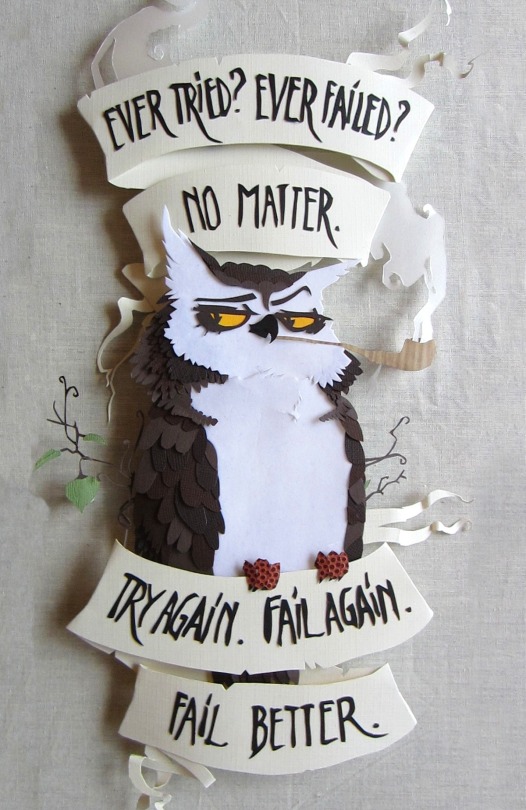
Knowing how to be solitary is central to the art of loving. When we can be alone, we can be with others without using them as a means of escape.
Bell Hooks (via childrenofthetao)
Do you have a list of books or other resources on Daoism that you've found to be the most useful?
There's a lot of great books on Daoism, so it's hard to say what have been the "most" useful. Of course, the original text by the old man is probably the best place to start. Most translations are pretty solid, just be careful about those that try to insert their own commentary into the text.
The Dalai Lama's "Beyond Religion" is definitely one of my favorite books on religion and life philosophy, and I highly recommend giving it a read. It's simple and practical and insightful, which I think is the way Daoism should best be approached.
I also recommend "The Tao of Pooh," which I understand to be the gateway book for a lot of people into Daoism. Again, it is a book that is easy to understand and preaches a simple happiness for us all. There are lots of folks who want to write deeply and extensively about the Path, Life, and the universe, but starting with simplicity is the best idea, in my opinion.
Hello, I have been looking into Daoism as a faith. I was wondering if you think it would be against Daoist belief to be Transgender or Gay?
As I have written about before, I don't think it's necessary to consider Daoism as a religion, per se; you could think of it more like a collection of ideas to set yourself more at ease with the world around you. Therefore, it's not as if there are any strict adherents or practices that one must follow in order to be considered a "good" Daoist; you are free to live your life however you choose to live it.
That said, I have also previously written about the need for discernment in our lives when it comes to following our "gut feelings." By checking ourselves before we act on our choices, we can save ourselves a great deal of trouble down the road. I believe a great deal of Daoism's power comes from accepting yourself as you are, which means avoiding unnecessary labels or practices to change yourself. You are you, period. There should be no need to alter one's body in order to more cleanly fit into someone else's categories; if we want to change ourselves it needs to be for ourselves and on our own terms.
I suppose in practice it might seem like the same thing, but clarifying one's own motivation is an important step to figuring out our own identity. In short, there is nothing wrong with being Trans or Gay, but spend lots of time defining yourself before adhering to someone else's labels.
"Only a Sith deals in absolutes."
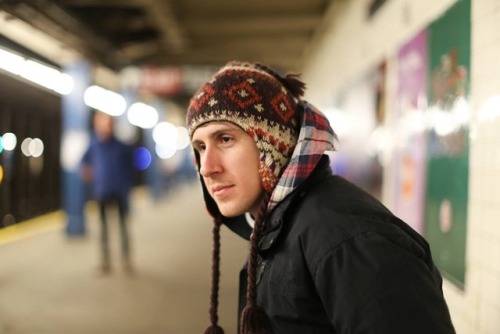
"I can’t stand moral absolutism. You know, there’s always that guy who wants to point out that Martin Luther King cheated on his wife— as if he obviously couldn’t have been a great person if he did something like that. Or someone will bring out an inspirational quote, and get you to agree, and then inform you that Hitler said it. As if a good thought couldn’t come from Hitler. Moral absolutism keeps us from learning from the past. It’s easy to say: ‘Hitler was a demon. Nazis were all bad seeds.’ That’s simple. It’s much harder to say: ‘Is that humanity? Is that me?’"
it's taoism. or is it supposed to be something else?
The romanization of Chinese pronunciation is a tricky beast. The current convention of this particular word is with a hard "D" sound, as in "dare" or "danger."

sometimes language matters. sometimes it doesn't.
